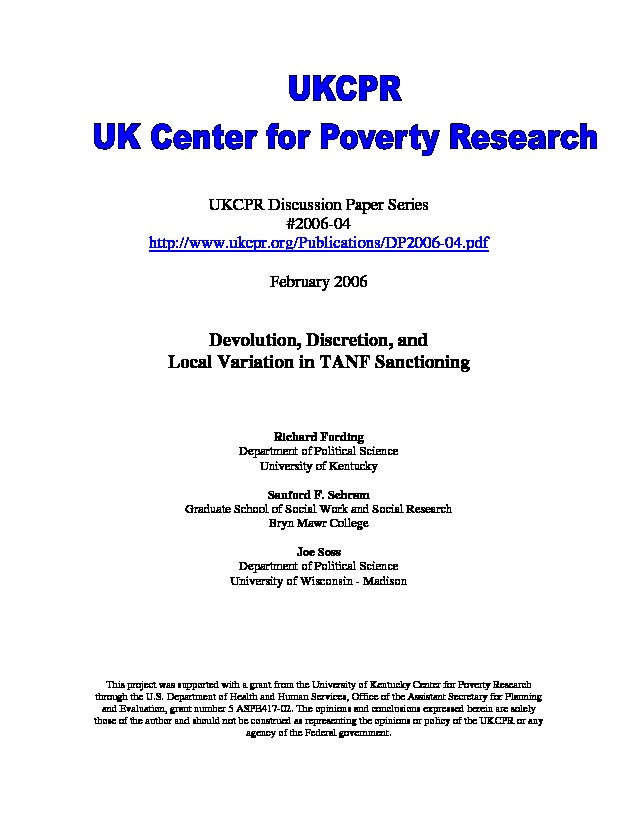At least in Florida, we find that local discretion has increased in importance under TANF. We find significant variation in local practices and strong evidence that these differences are tied to local political values. We also find that social class variables are important in determing sanction outcomes. Individuals with lower levels of human capital are more likely to be sanctioned. Our analysis also underscores the potential importance of using a longitudinal design to study sanctioning outcomes. This conclusion is supported by at least two important aspects of our findings -- the existence of a seasonal pattern to sanctioning, and the relationship between race and sanctioning. Holding other variables constant, the overall rate of sanctioning in Florida is higher during the peak tourist season than it is during the summer monthssuggesting that studies conducted in short time frames may reach conclusions that cannot be reliably generalized to rest of the year. Ethnic differences in sanctioning are also related to the length of time on TANF. Thus, sanctioning disparity may be a more complex phenomenon than we have thus far understood and is therefore best studied using a longitudinal design.
Research
Welfare ReformPDF Thumbnail
